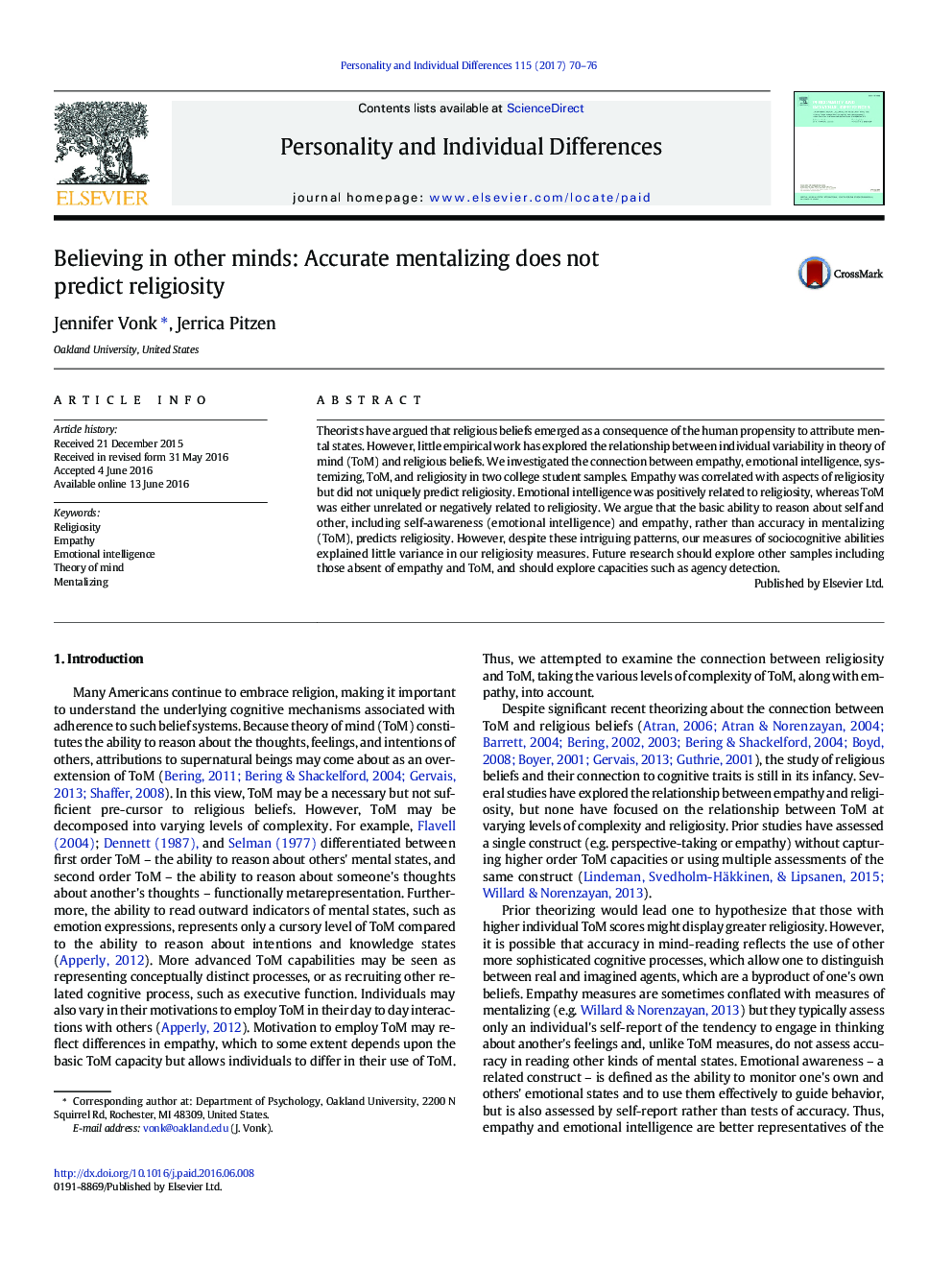| کد مقاله | کد نشریه | سال انتشار | مقاله انگلیسی | نسخه تمام متن |
|---|---|---|---|---|
| 5035844 | 1472003 | 2017 | 7 صفحه PDF | دانلود رایگان |
- We assessed variation in sociocognitive traits as predictors of religiosity.
- Emotional intelligence was positively associated with some aspects of religiosity.
- Theory of mind was negatively or not at all associated with religiosity.
- Empathy did not uniquely predict religiosity.
- The basic tendency to mentalize but not accurate mentalizing predicts religiosity.
Theorists have argued that religious beliefs emerged as a consequence of the human propensity to attribute mental states. However, little empirical work has explored the relationship between individual variability in theory of mind (ToM) and religious beliefs. We investigated the connection between empathy, emotional intelligence, systemizing, ToM, and religiosity in two college student samples. Empathy was correlated with aspects of religiosity but did not uniquely predict religiosity. Emotional intelligence was positively related to religiosity, whereas ToM was either unrelated or negatively related to religiosity. We argue that the basic ability to reason about self and other, including self-awareness (emotional intelligence) and empathy, rather than accuracy in mentalizing (ToM), predicts religiosity. However, despite these intriguing patterns, our measures of sociocognitive abilities explained little variance in our religiosity measures. Future research should explore other samples including those absent of empathy and ToM, and should explore capacities such as agency detection.
Journal: Personality and Individual Differences - Volume 115, 1 September 2017, Pages 70-76
